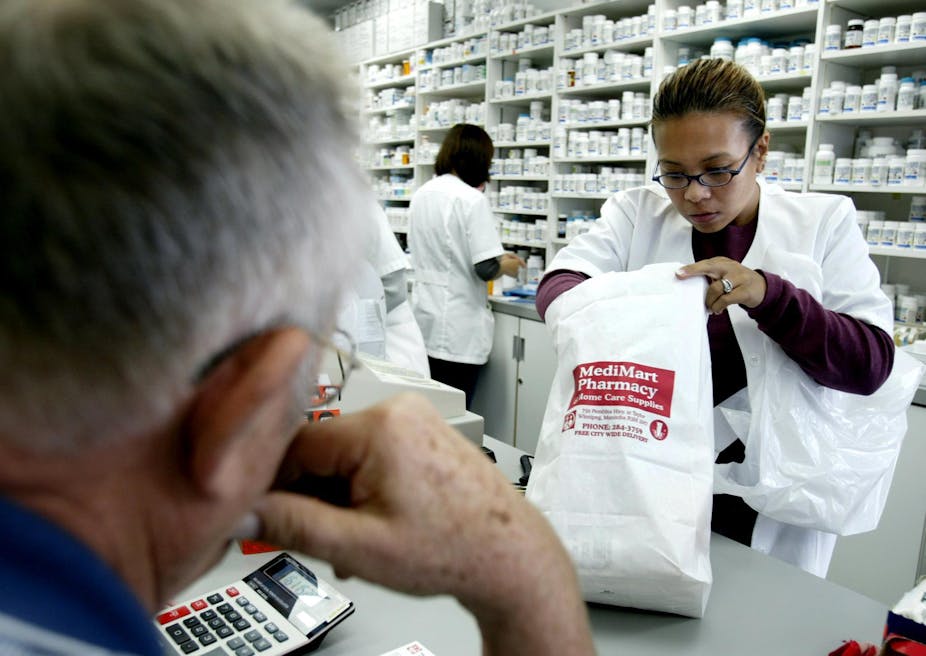“When people get sick or injured or want advice about their health, they want to see a doctor,” Dr Andrew Pesce, AMA President.
When people feel sick, have a rash or need advice about an ailment, pharmacists are often the first point of call. In fact, in any one year, each Australian will visit a community pharmacy around 14 times for various reasons.
This puts pharmacists at the forefront of patient care. We manage minor illness, triage more complex patients to the right health provider, and give advice about lifestyles and disease prevention.
Pharmacists are continually ranked among the most trusted professionals in the community.
We are society’s medication experts. But our role goes well beyond our knowledge and expertise in the management of medications.
These days pharmacists provide more primary and preventative care in the community. We help patients manage their diabetes, asthma, hypertension, cholesterol and pain, and provide medication management services such as the Home Medicines Review.
But pharmacists’ skills and knowledge are still the most under-utilised in our health system.
If patients can’t get in to see their GP for a repeat prescription, pharmacists can’t dispense the patient’s regular contraceptive pill, adjust their dose of warfarin (the blood-thinning medicine that reduces your risk of stroke), and replenish the medication supplies of recently discharged hospital patients.
There is clearly scope to better utilise pharmacists’ medication expertise to take on more of the prescribing and medication management load from GPs.
There is significant evidence to demonstrate our ability to work effectively in collaborative prescribing models.
Pharmacists already play an active role in identifying and referring patients to doctors, dieticians, optometrists, community health services (e.g. life-tec), physiotherapies, psychologists and patient support groups (e.g. diabetes Australia, Arthritis Foundation).
We see ourselves as part of the health care team and are keen to utilise the skills of the health professionals around us to best manage patient care.
International studies show the presence of a pharmacist in the primary care setting can improve patient care, particularly around medication related adverse events and overall disease state management.
The increasing burden of chronic disease, an ageing population, the rising cost of healthcare and workforce shortages has put an enormous pressure on the health care system.
There is clearly a role for pharmacists beyond the four walls of a community pharmacy, working closely with general practitioners and other allied health staff in our medication expert role.
We need to look at the skills and knowledge that each health professional has and their potential contribution to the system, rather than just the professional “hat” that they wear.
As shortages of doctors and nurses become more acute and waiting times for specialist and primary care services grow, pharmacists will be willing and able to pick up some of the slack.

